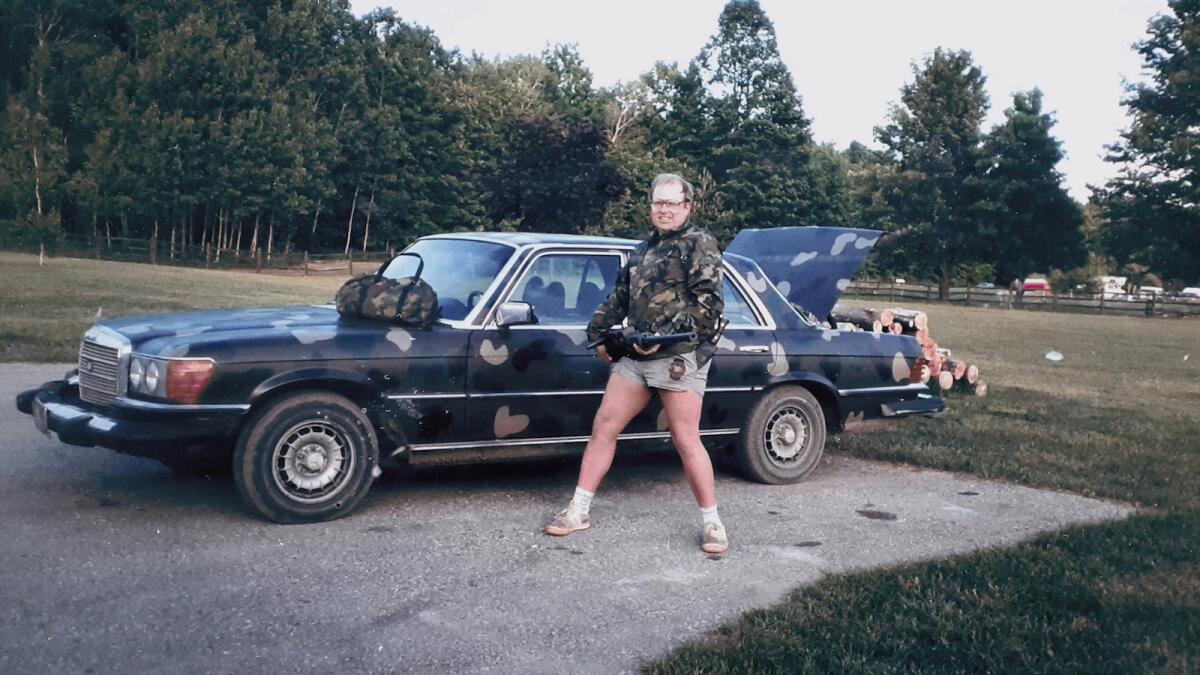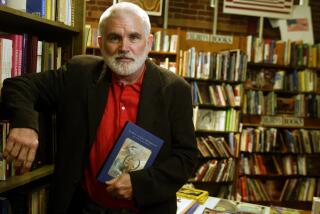Review: Ramin Bahrani tells a uniquely American, uniquely bizarre story in â2nd Chanceâ

Having previously chronicled the immigrant pursuit of the American dream in such powerfully poetic films as âMan Push Cartâ and âChop Shop,â Ramin Bahrani hasnât strayed far from his favorite theme for his first feature documentary.
But with â2nd Chance,â the North Carolina-born, Iranian American filmmaker focuses on a uniquely home-grown main subject in the intriguing mess of contradictions that is lifelong Michigander Richard Davis, a bankrupt pizzeria owner who reinvented himself in the process of inventing the first concealed bulletproof vest to incorporate Kevlar.
For your safety
The Times is committed to reviewing theatrical film releases during the COVID-19 pandemic. Because moviegoing carries risks during this time, we remind readers to follow health and safety guidelines as outlined by the CDC and local health officials.
Combining old-fashioned practicality with the shameless hustle of a sideshow carny and driven by a narcissistic thirst for attention, Davis, who patented the body armor in the early 1970s, certainly makes for a timely protagonist.
Bahrani, who also serves as off-camera interviewer and narrator, shrewdly lets Davis speak for himself, in the process allowing for timely observations on societyâs legacy of gun culture, as well as its increasingly tenuous relationship with truth-telling.
After a brief history of body armor, thereâs scratchy home movie footage of the man of the hour providing a firsthand demonstration of his lighter, concealable product, dispensing with phony test dummies and proceeding, chillingly, to shoot himself point-blank in the chest with a .38-caliber revolver.
The footage proved persuasive with local police officers and, after hand-delivering the vests in pizza boxes (his two stores burned down under suspicious circumstances), Davis would launch Second Chance body armor manufacturing company, which at one point employed 80% of the town of Central Lake, Mich.
Its success granted the admittedly hedonistic Davis the opportunity to live large (he told his first wife theyâd be able to go to Kmart and buy anything they wanted, achieving âredneck nirvanaâ), but in addition to the 191 subsequent times he repeated his self-inflicted shots to the heart for prospective buyers, on several occasions he also shot himself in the foot.
Most notably, Davis made what he dismisses as an âinglorious misstepâ when Second Chance introduced lighter-weight body armor incorporating Zylon, billed as Kevlar on steroids, but the new vests were marketed even as the company was made aware that the quickly-degrading material wouldnât prevent bullet penetration.
When a police officer was killed while wearing the new body armor and the corporate cover-up brought to light by Davisâ own right-hand man, whose life, ironically, had been saved by a Second Chance vest decades earlier, the resulting investigation ultimately led to the companyâs demise.
For Bahrani, itâs all those swirling contradictions that make the Davis story so intriguing.
âWhat makes a man risk his own life in order to save thousands of people, ultimately putting over 100,000 lives at risk?â asks Bahrani, seeing Davis, now in his mid-70s, as a metaphor for the country.
As crafted by Bahrani, this fascinating portrait of a hero/villain who comes across as both affable and unpleasant, often simultaneously, is a Greek tragedy and a Shakespearean comedy with a touch of âTiger Kingâ all expertly rolled into one all-too-pertinent cautionary tale.
â2nd Chanceâ
Not rated
Running time: 1 hour, 29 minutes
Playing: Starts Dec. 2 at Alamo Drafthouse, downtown Los Angeles; AMC Burbank 16
More to Read
Only good movies
Get the Indie Focus newsletter, Mark Olsen's weekly guide to the world of cinema.
You may occasionally receive promotional content from the Los Angeles Times.










